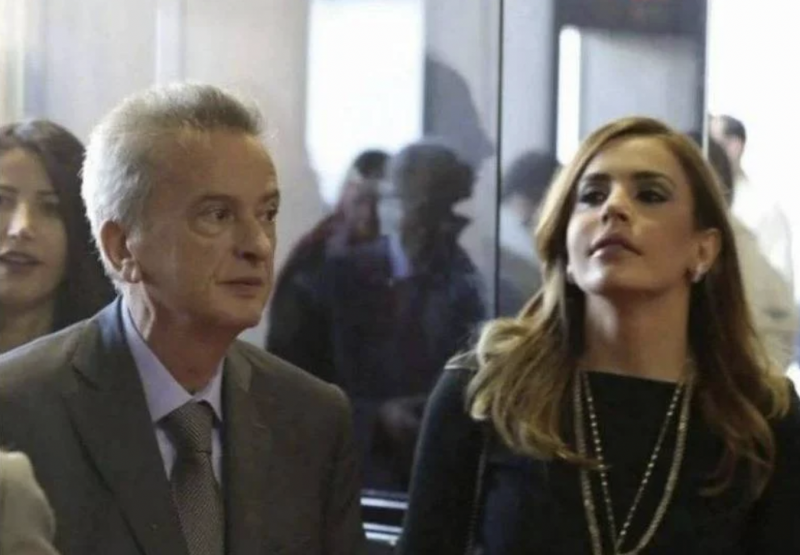
BDL head Riad Salameh and his former assistant Marianne Hoayek. (Credit: archives Le Commerce du Levant)
Marianne Hoayek, the former assistant of Lebanon's central bank chief Riad Salameh, is being questioned in Paris on Friday by the magistrate in charge of investigations into suspected Lebanese ill-gotten gains, with a view to a possible indictment, sources close to the case said.
Hoayek is suspected of having participated in the creation of real estate and banking assets in Europe for the benefit of Salameh and his entourage, through a complex financial arrangement and massive misappropriation of Lebanese public funds.
The 43-year-old former assistant to the governor arrived at the Paris Magistrates' Court at around 9.15 a.m.
She was summoned by the examining magistrate in charge of the case, who was expected to question her throughout the day about her role in suspicious financial flows between the Banque du Liban (BDL) and European bank accounts.
At least two other people have been charged in the case: Anna K., a close associate of Salameh, suspected of being one of his nominees in France, and Marwan Kheireddine, former minister and current head of the private bank al-Mawarid.
These suspicions of ill-gotten gains are the subject of investigations in several European countries.
Salameh, whose term of office expires at the end of July, has rejected the accusations from the outset, repeating that he amassed his fortune while working for the US investment bank Merrill Lynch before taking over as head of BDL in 1993.
Salameh, 72, failed to appear on May 16 to answer a summons from the investigating judge in charge of the case, who issued an international arrest warrant for him.
Lebanon does not extradite its nationals: after receiving Interpol's red notice, based on this arrest warrant, the Lebanese judiciary forbade him to leave Lebanon and seized both his Lebanese and French passports.
Since the beginning of the year, European judges, including the French magistrate, have visited Lebanon three times to question him and his family.
The investigations began in France with two complaints from the Sherpa association and the "Collectif des victimes des pratiques frauduleuses et criminelles au Liban" (Collective of victims of fraudulent and criminal practices in Lebanon), formed by savers robbed during the financial crisis that has hit the country since 2019.